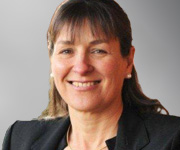TEN years ago the surprise and delight of seeing a parrot in the pawpaw tree outside my kitchen window stimulated reflections on my migration experience from GP in York, England, to outback academic in Alice Springs.
Our temporary Australian fling has now become permanent.
I am grateful to now have Australian citizenship and friends say: “So I guess you are a true blue Aussie now”. But am I?
To my family I sound Australian. To Australians there is enough plum left in my voice to reveal my English origin, which the cognoscenti recognise as North West when “something” is “sumthink” and “bath” rhymes with “math”.
Dialectically I am set adrift mid-Pacific.
I wrote in 2002 that the fundamentals in my life had not changed. They still haven’t.
I am married with two children and go to church regularly. But time has moved on. Both “children” are at university.
I’ve written books, chaired organisations and dealt with downpours and the ensuing mouse, frog and locust plagues of biblical proportions. My predilection for swimming and camping means my English complexion has new life lines.
My best preparation for living in Australia was living and working in York. There I was considered a foreigner although it was less than 110 km from my home village on the other side of the Pennines.
My accent was different and I knew that I could never be truly accepted as I was not born there. It showed me what prejudice feels like. I was judged on a background over which I had no control.
A recent article showed that doctors leave the UK and then settle in New Zealand because of work, family and lifestyle opportunities. In a tick box survey my answers would be the same.
But it’s more than that.
As a migrant it is both a privilege and a challenge to start again and build a new identikit identity.
I now feel less subject to historical, family and English cultural traditions and am free to assess which traditions remain ethical and of value, and which can be ditched.
I keep hold of the English sense of following process but may be pragmatically Australian if the guideline or protocol does not fit particular circumstances.
I try to maintain an English sense of diplomacy and courtesy but am also learning some Australian honesty — that “a bitch in time may save nine”. And I want the Australian principle of a fair go to displace decision making based on social class, income or race.
I now get a deep satisfaction from meeting people from different backgrounds and seeing if I can understand their wants, needs and worries.
In the end what does identity matter? It is a short-cut to assess how likely we are going to get on with someone, to predict how best to work with them and, more menacingly, a way of dismissing people as unworthy before they are given a chance to prove themselves.
History shows us that behaving towards others based on identity alone can be disastrous.
So am I Australian? Am I English? Who cares?
I am me: a pick ’n’ mix blend trying to be a good academic-doctor-wife-mother. Hopefully, like a good wine, the ingredients are there so I will improve with age.
Dr Susan Wearne is a GP at Central Clinic, Alice Springs and senior lecturer with the Flinders University Rural Clinical School.
Posted 23 April 2012

 more_vert
more_vert
Good on yer Susan, youse sound like a real Aussie. Continue to enjoy life, but I hope Poms lose the Tests, Cheers Alex